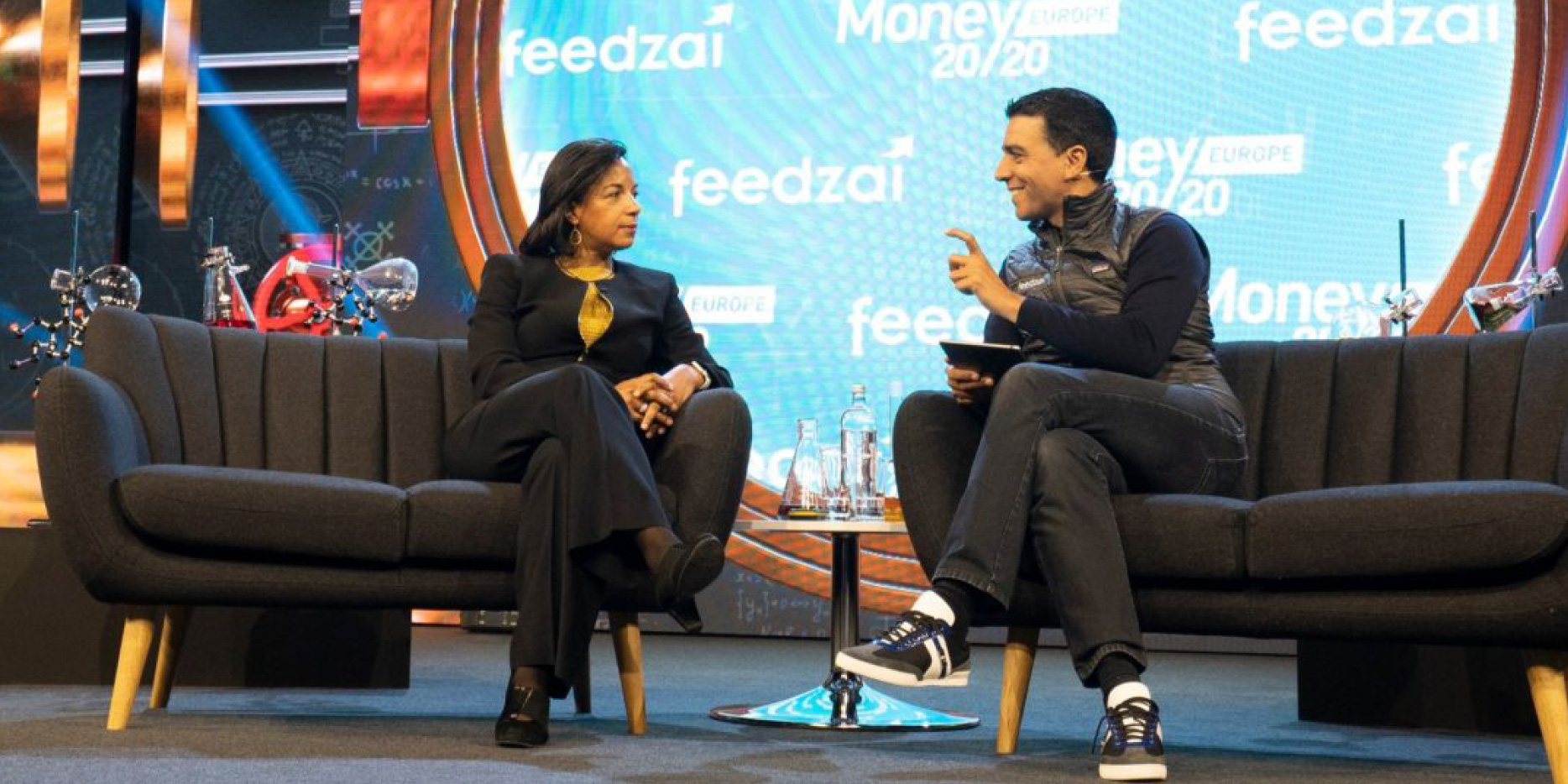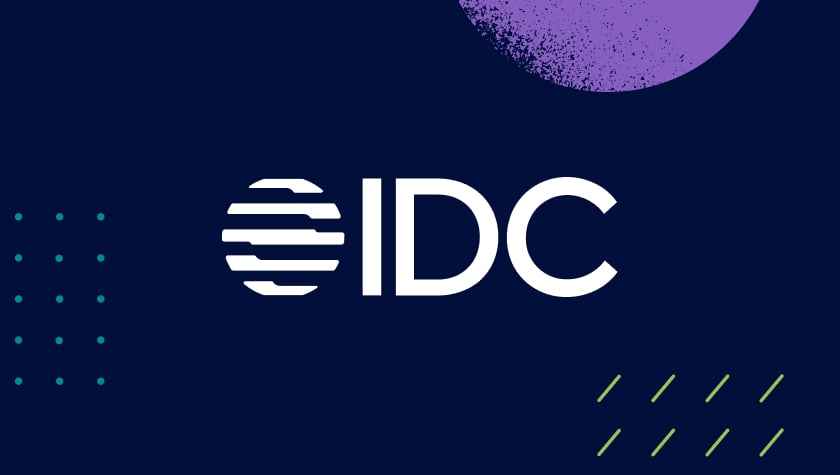
Ambassador Susan Rice, former U.S National Security Advisor under President Obama, joined Feedzai CEO Nuno Sebastiao in a main stage presentation last week in Amsterdam to discuss terrorist financing, human trafficking, and international security. This was part of the first Financial Crime and Technology Summit held at Money 20/20 Europe.
Why were Ambassador Rice and experts from McKinsey, Citi, and others there? To understand the devastating impact of financial crime and to look at the latest technology and tools to fight it.
Here are our biggest key takeaways from the Financial Crime and Technology Summit:
AI solutions elevate risk management strategies
Financial crime has a severe impact on companies that rely on large payments to be cleared without issues. Anthony Fenwick, Global Head of the AML Risk Management Compliance department for Citi’s Treasury and Trade Solutions, highlighted the importance of leveraging machine learning to avoid issues across geographies and products. Integrating AI solutions into risk management strategies can not only help organizations avoid evolving money laundering schemes but also help them remain compliant and maintain their reputations as well.
The value of data privacy
Customer experience remains a top priority at all companies, from challenger banks to retail companies, which is especially challenging in today’s climate of privacy and data security. With so many data breaches happening in organizations of every industry, fraudsters have access to more sensitive information than ever before. Michelle Evans, Head of Digital Consumer at Euromonitor International, noted consumers are increasingly aware of everything that’s happening at a regulatory level. This has had an effect on how much control they demand over their data, who they bank with, and how they respond to bad PR.

The future of fighting fraud
When we think of fraud prevention, behavioral biometrics may not be the first thing that comes to mind. The future of preventing financial crime is dependent on innovative technology, especially the work being done at BioCatch. Chief Cyber Officer, Uri Rivner and Head of Threat, Gareth Campbell from BioCatch, hosted an informative workshop on the importance of biometrics in cybersecurity. BioCatch has been Feedzai OEM partner since 2017, delivering AI-driven behavioral biometrics and analyzing human-device interactions to protect users and data.
Financial institutions leverage behavioral biometrics to reduce online fraud and for improved identity verification. Uri and Garth explained and provided examples of how behavioral biometrics helps financial institutions establish user profiling and criminal profiling in terms of both fraud prevention and detection. One example of BioCatch’s technology came from a credit card issuer, who detected fraud because the criminal pasted the first name as opposed to typing it within the first three seconds of an online session.
Another advanced technology with potential to be a key player in the future of fraud prevention is blockchain and cryptocurrency.
Daniel Kornitzer, Paysafe’s Chief Business Development Officer, led a workshop highlighting how a combination of AI, blockchain, and behavioral analysis can lead to increased data transparency to prevent fraud. Paysafe is a payments provider, with solutions including payment processing, digital wallet, card issuing, and online cash solutions. Daniel acknowledged blockchain and cryptocurrency’s reputation, but more importantly, he illustrated how both technologies could play a role in preventing financial crime. One way cryptocurrency can be effectively managed is by establishing proper limits for single, daily, weekly, monthly, and lifetime transactions. The possibilities that blockchain could provide were raised as well. Might it be the fabric for federated digital identity?
Discussions led by industry innovators at companies like BioCatch and Paysafe remind us why we established the Feedzai Frontiers series in the first place. Our ultimate goal is to discuss ways that we can protect society and prevent immoral acts that are often funded by financial crime. The next chapter of the Feedzai Frontiers series will take place at Money 20/20 USA this fall. We can’t wait to shepherd even more important conversations that have the potential to shape the future of the financial crime prevention landscape.
The importance of integrity
Ambassador Rice said, “If the system is known to be easily exploitable, it won’t be trusted. It won’t have the confidence of the individuals and the entities that rely on it. And so when it comes to corruption, when it comes to money laundering, these are all very real challenges that I believe it behooves companies to get ahead of and be invested in trying to prevent. Because those that don’t will have reputational challenges and will have trust challenges, and then the integrity of the system as a whole can be called into question —which is dangerous.”
Watch the video of her conversation with Nuno at Money20/20 Europe.
Share this article:
Related Posts
0 Comments6 Minutes
A Guide to Secure, Seamless User Authentication in Payments
Online payments demand a delicate balance between security and user experience. Consumers…
0 Comments7 Minutes
Combating Emerging Scams in the Philippines
The Philippines is witnessing remarkable growth in digital banking. Unfortunately, a…
0 Comments5 Minutes
Feedzai is a Leader in the 2024 IDC MarketScape for Enterprise Fraud Solutions
Exciting news! Feedzai, the world’s first RiskOps platform, is proud to have been named a…

